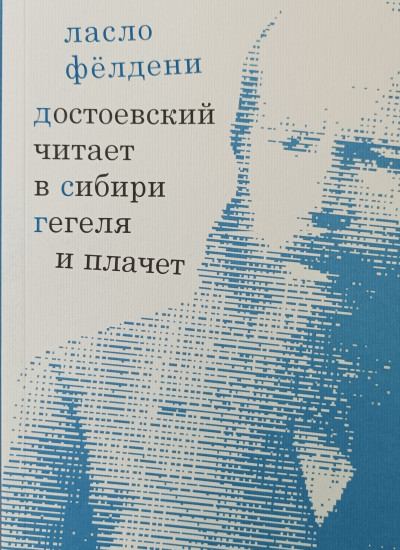Dostoyevsky Reads Hegel in Siberia and Bursts into Tears

In Russia, however, his oeuvre has been completely unknown, and not a single one of his books has been published, although Russian authors and philosophers (e.g. Dostoyevsky, Bardyaev, Shestov, and Salamov) feature prominently in Földényi’s work as an essayist.
Therefore, the first half of his collection of essays reflects on Russian literature and philosophy, while the second part draws on a broader historical and cultural context.
The volume, to be published by Tri Kvadrata publishing house in Moscow, will contain the following essays by László F. Földényi:
I.
“Dostoyevsky Reads Hegel in Siberia and Bursts into Tears”
“Széljegyzetek Bergyajevhez” [ Annotations to Bardyaev] (Nikolai Bardyaev: Dostoyevsky: An Interpretation)
“Valóban minden megengedett?” [Is Everything Really Allowed?]
“Lev Sesztov, a radikális optimizmus filozófusa” [Lev Shestov, the Philosopher of Radical Optimism]
“Lágerekről írni (Újraolvasva Dosztojevszkij: Feljegyzések a holtak házából című könyvét)” [Writing about Labor Camps (Re-reading Dostoyevsky’s Notes from The House of the Dead)]
II.
“Tömeg és szellem (90 éves Elias Canetti emlékének)” [Mass and Spirit (In Memoriam Elias Canetti, 90 years old)
“Az ördögbe vetett hit” [Faith in the Devil]
“A gömb alakú torony (Bábel tornya az ezredvégen)” [The Spherical Tower (The Tower of Babel at the Millenium)]
“Boldogság és melankólia,avagy időszerűtlenségük dicsérete” [Happiness and Melancholy, Or the Praise of Their Timelessness]
“Európa irodalma” [The Literature of Europe]
“Búcsú a műveltségtől (A műveltségről, a tudásról, az információról)” [Good-bye to Erudition (On Erudition, Knowledge, Information)]
László F. Földényi (1952) is an Attila József and Széchenyi Prize-winner aesthete, literary critic, literary historian, and renowned representative of the humanities in Hungary, also acknowledged abroad. In 2009, he was elected a member of the German Academy of Language and Literature (Deutsche Akademie für Sprache und Dichtung), and in 2020 he was awarded one of the most prestigious German literary prizes (Leipziger Buchpreis zur Europäischen Verständigung). His works are characterized by an unparalleled erudition and a sensitivity to the post-Enlightenment crises and repression of world culture. His writings, such as the essay “Dostoyevsky Reads Hegel in Siberia and Bursts into Tears,” as mentioned in the title, constitute a kind of critical commentary on modern civilization. This is the reason why Földényi’s books on literature and arts have been translated into several languages.